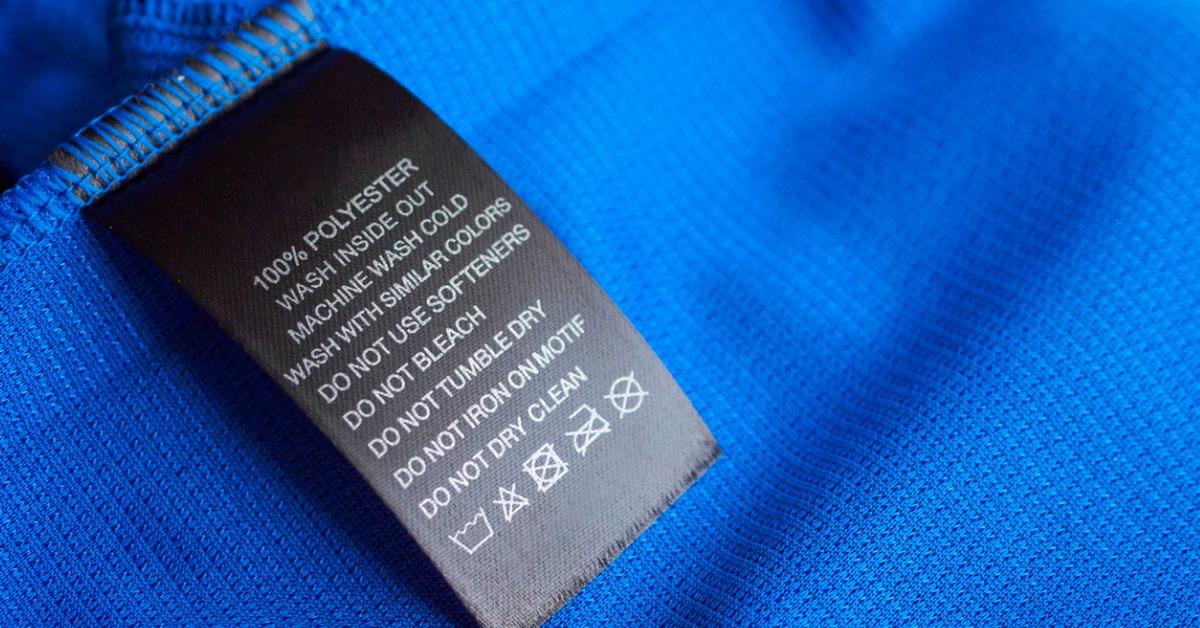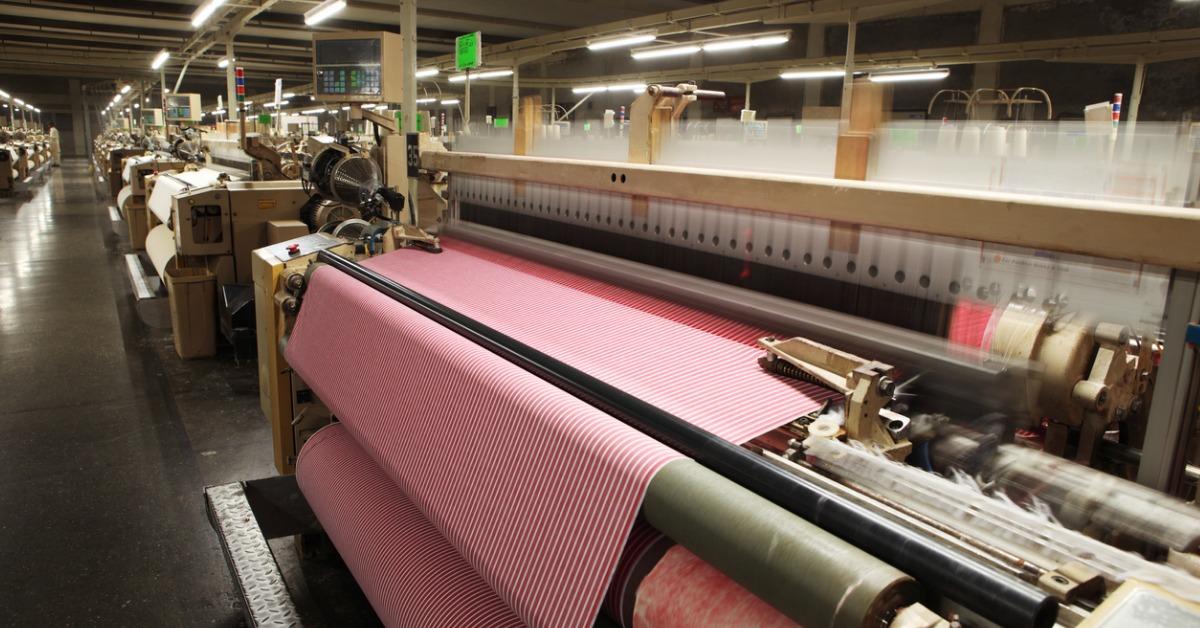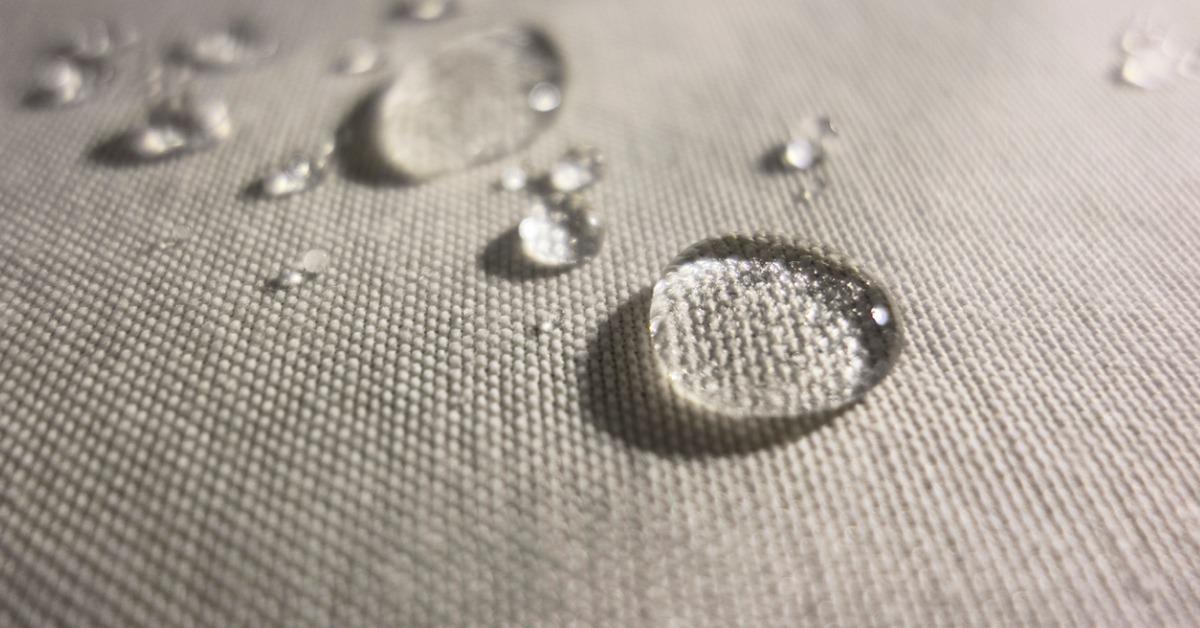How Does Polyester Impact the Environment? Is It Eco-Friendly?
Updated Jan. 26 2023, 12:00 p.m. ET

If you really think about it, polyester is basically cotton’s robotic double. It’s not an improvement, per se, but it is cheap, versatile, and far easier to produce. It has also become ubiquitous in the world of fashion, so much so, that many couture fashion pieces even contain a fair amount of this so-called “miracle fiber.”
Of course, most fashion designers and consumers will tell you that however versatile polyester may be, it is certainly no replacement for natural silk, wool, or cotton. People have been using those other, naturally-occurring fabrics for centuries without fail, and some are actually quite sustainable. Why then would we continue to utilize this uncomfortable, plastic textile instead, and what are the environmental consequences for doing so?

What is polyester?
First invented in 1941 by British chemists John Rex Whinfield and James Tennant Dickson, polyester did not become popular until the 1970s, when it started being marketed as a miracle fiber. The name is shortened from polyethylene terephthalate, a synthetic, man-made polymer created by mixing ethylene glycol and terephthalic acid. What this means, to the laypersons reading, is that polyester is not fabric at all, but a kind of plastic.
Is polyester eco-friendly?
As most types of polyester are made from plastic, the material is subject to the same ecological concerns as all other plastic projects. It comes from an unsustainable carbon-intensive non-renewable resource: petroleum. According to Forbes, more than 70 billion barrels of oil are used to make polyester each year, an astounding number considering how many people eschew the material entirely.
Now, it should be noted that many recycled plastic bottles have been made into polyester fabric in recent years, which is pretty great, all things considered. However, plastic is neither compostable nor biodegradable. It will persist in the ecosystem even as it eventually breaks down into chemical compounds or dangerous microplastics.

Does polyester contribute to plastic pollution?
Synthetic garments like polyester are a significant source of microplastic pollution in the oceans today. This is because up to 1,900 plastic fibers can be washed off one garment every time it is washed, according to Ensia. Even the highest-quality polyester clothing results in a slow deterioration with every subsequent wash. Now, they don’t have to be washed as often as other cotton or woolen garments, mind you, but you’re going to have to wash them at some point.
Does polyester use a lot of energy to make?
Polyester may be less energy-intensive than nylon to produce, but it still requires double the energy of cotton, at least according to the blog Tortoise and Lady Grey via Ecocult. The process also utilizes harmful chemicals, including carcinogens, which can wind up in the air and water around polyester factories. Much of the world’s polyester is created in places like China, Indonesia, and India, some of the most polluted places in the world.
On top of all that, the dyes used on polyester are generally terrible for the environment as well. According to the website Good On You, the special disperse dyes used on polyester are insoluble in water and, much like polyester itself, do not easily decompose. Wastewater from the pollution-producing factories then washes the dyes out into the world, putting toxins right into the water table. The only upside of the process, if any at all can be found, is that it is not highly-water intensive, so not a lot of water is needed. It’s just too bad that the eventual microplastics offset this mild benefit.

How do I dispose of my old polyester?
When it comes to disposing of polyester clothing, your best bet is to keep using the garments and handing them down until they eventually fall to pieces. At this point, you can send them to fabric recycling. While this type of recycling is certainly imperfect, it's better than sending fabrics to a landfill somewhere with all the other soiled detritus of our collective past. Either way, the end result of all that energy and carbon consumption is not ideal.
What are the pros to using polyester?
Polyester has many positive qualities for the wearer. Because of its plastic origins, it is durable and resistant to many chemicals. It is easily dyed and lightweight, but incredibly strong but retains its shape rather well. Thus, it resists shrinking, stretching, and wrinkling, the last of which is one of its main selling points.
Polyester is also easy to care for, and can be easily washed and dried at home. It’s also quick-drying, which makes it a good choice for outdoor clothing. On top of that, polyester is thermoplastic, so it retains heat rather well. As a result, it’s good for coats and pullovers, but doesn’t breathe very well, so it’s not great for summer clothing.

What are some cons to using polyester?
In addition to the negative environmental effects of polyester, the fabric also has some cons for the wearer.
Polyester, in comparison to other natural fabrics like cotton, cashmere, silk, and wool, is not hypoallergenic or breathable, though it is durable. It can be uncomfortable to wear and doesn’t absorb moisture well at all, which means sweat kind of pools underneath it. These days though, manufacturers are making moisture-wicking polyesters that are great for workout or leisurewear. It is also highly flammable, and clothing that is 100 percent polyester should never be worn near an open flame.
This article, originally published on Nov. 11, 2020, has been updated.